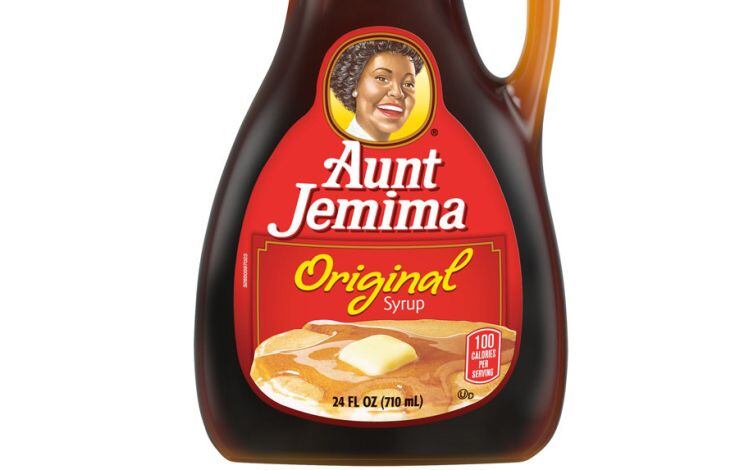He explained to FoodNavigator-USA that since the deaths of George Floyd, Breonna Taylor, Ahmaud Arbery and many other Black Americans in recent months have elevated the Black Lives Matter and anti-racism movement to a new level nationally and globally, much of the food and beverage industry has stepped forward to amplify activists’ voices, donate to the fight against injustice and commit to intentionally hiring and promoting more Black, Indigenous and people of color (BIPOC).
But while these are necessary and helpful steps, Steltenpohl challenges the industry to do more.
“A lot of people are just focusing on how many people have you hired lately of a certain race or not … or how companies can give or donate, and I think all of that is a start, but I think the food system itself has to make some changes,” Steltenpohl told FoodNavigator-USA.
For example, he said, CPG companies should hire more people of color up and down their supply chain – not just at their headquarters, although doing that is important and not easy.
“The majority of products that are supplied to us through our coffee supply chain, through our coconut supply chain, cashew supply chain, are from people of color and a big part of what we try to stand for is what we call direct trade, which means more equitable food pricing at the farm gate” so that farmers are paid more in line with what commodity prices are, rather than just a sliver of it, Steltenpohl said.
This same principle applies to any out sourced services, including advertising, marketing, co-packing, distribution, customer relations, consumer research and more.
As for hiring more BIPOC within a company, Steltenpohl challenged naysayers who dismiss a quota system as too hard. He encourages companies to reach out to communities, including universities and alumni networks, to find out how they can help improve the companies’ pipeline of potential employees. He also advises companies to fill this pipeline early and plan for positions so that no compromises are made because of timing.
Limited access to healthy food in communities of color ‘is a form of institutional racism’
Beyond investing in BIPOC as employees and business partners, Steltenpohl said food manufacturers must address deep inequities in how their products are distributed and accessed – long-known problems that the ongoing coronavirus pandemic has underscored.
Steltenpohl explained that across much of the US, the anti-racism movement has grown alongside the threat of the coronavirus pandemic, which has sickened and harmed BIPOC at a significantly higher rate than their white counterparts in part because of systemic racism in the food system, Steltenpohl said.
“COVID-19 impacts communities of color for multiple reasons. One is the underlying climate conditions of poor diet, which are related to good food access and good food to access,” he said. “In many neighborhoods with heavy African American communities there is a lack of well-stocked grocery stores and higher amounts of liquor stores and convenience stores, which do not feature and supply healthy and wholesome foods for the neighborhood.”
This forces people to travel farther to get a wide variety of food choices, but the ability to do this is itself a privilege that is not available to everyone and is a form of institutional racism, he said, calling on manufacturers, retailers and food distributors to actively improve access to nutritious products.
“The food system itself being a part of structural racism, I think, is a really poor reflection the industry itself, and to change that is going to take partnerships between retailers, local governments to supply tax breaks or incentives for businesses to try to address some of these issues and private companies like ourselves,” he said.
“One of the things that we have done is partner with Target to create better access and supply through the Feed America program, in which they have become a principle national partner,” Steltenpohl said. Through that partnership, he explained, Califia Farms has pledged to donate 1 million meals through a matching program to people with the greatest need around the country, “the majority of whom are people of color.”
Another way to improve access is to improve online shopping so that products are easily found and purchased for delivery online. This may mean reducing financial barriers, such as minimum orders, shipping fees or creating smaller sized bundles or options at a lower price-point. It also means ensuring that DTC ecommerce platforms are easily navigated on mobile phones.
Improving access to healthier foods also might mean improving the nutritional profile of products, Steltenpohl said.
“We have tried and succeeded over the last five years to reduce our sugar content in our beverages by almost 50%. We are in the 30s now, and I think by the end of next year we will have succeeded in our first goal, which was to have a 50% reduction in sugar,” he said.
Califia Farms joins advertising boycott of Facebook, Instagram
How food companies reach new consumers and communicate with existing ones can also reinforce systemic racism or fight against it. As such, Califia Farms has joined many other industry players in withdrawing paid advertising from Facebook and Instagram, which have come under fire for mishandling racist, violent and hateful rhetoric on the platform.
“We think the idea of profiting off of exploiting the divisions between people by algorithmic justifications or algorithmic methodologies is a really bad form of business, and we think that a very clear message food companies – and more importantly CPGs where brand reputations stand for something and are earned … is to sacrifice whatever benefits we got from advertising on Facebook and Instagram to send a very clear message that we think there are negative consequences to that kind of divisive business model,” Steltenpohl said.
Califia Farms is not alone in this logic, but rather has joined a growing list of high-profile companies that have suspended paid advertising on the platform, including Coca-Cola, Unilever, Starbucks and many more.
“This is a boycott that will span until we and others who are part of that boycott reach some kind of commonality about just practices and a more compassionate view point towards how [Facebook and Instagram] conduct business and make their profits,” Steltenpohl said.
He explained that he will take his queue from the Black Lives Matter organization and other civil rights groups, including the Anti-Defamation League, the NAACP and Color of Change, which launched the #StopHateForProfit campaign to urge brands to stop advertising on Facebook in July. Early negotiations between these groups and Facebooks have not created a viable solution for all players.
The decision to join the campaign was not taken lightly by Califia Farms, Steltenpohl said, noting the move “hurts” his company, too.
“We have to make up for that eyeball contact, that way of increasing the top of the funnel from a marketing perspective, from a brand awareness perspective. So, we have to struggle to make new relationships, find other platforms and replace the efficiency that the Facebook platform brought to brands like ours,” he explained.
Appealing to ‘citizen consumers’
One way the company is doing this by focusing on new opportunities created by the mass shift to online shopping spurred by safety concerns related to COVID-19. This includes showcasing the products on retailers’ digital platforms, Amazon and Google search.
Califia Farms also has shifted advertising dollars from Facebook and “almost marketing in general” to sponsor Black artists, writers and events that authentically align with company’s mission.
“We really look at how the brand can better serve, better be in conversation, better provide learning and better provide solutions for people, like food accessibility in neighborhoods, in support of Black owned businesses, Black artists. These are examples of things we are doing” that are more effective in today’s environment, Steltenpohl said.
He explained these tactics resonate better with who he described as the rising “citizen consumer,” who makes purchases based not just on need but on value as well.
“The other big part of COVID and all the cultural discussions that have been provoked by the Black Lives Matter movement and just by our country’s renewed attention to structural racism, regardless of who it is applied to … has deepened the emotional coupling a citizen and a consumer to what we call more accurately now a citizen consumer,” Steltenpohl explained.
“More than ever, people want authenticity from their brands and particularly from food brands that stand for things like natural food, holistic health and so on. The bar is much higher, and I think all of us have to deliver on the integrity of each component of that evolution,” he said.
While change is difficult, and taking these steps can be uncomfortable, ultimately Steltenpohl said he hopes that food and beverage industry players will see these strategies as creating a more diverse and equitable food system not “as an obligation, or an act out of guilt or compliance, but … as resiliency, strength and just good business.”
Steltenpohl said it is too early still to tell how effective this marketing pivot will be, but, he said it is going “so far so good.”




